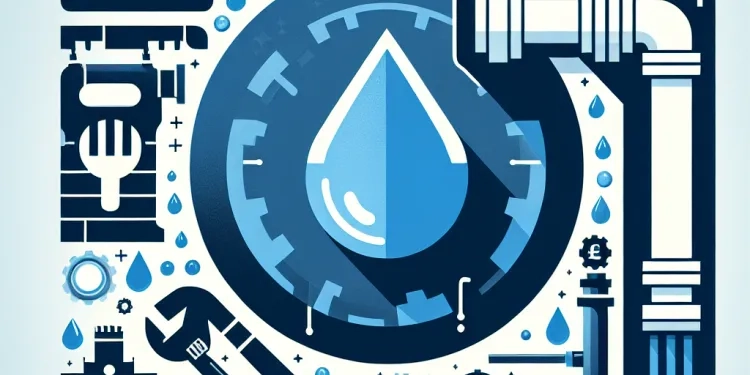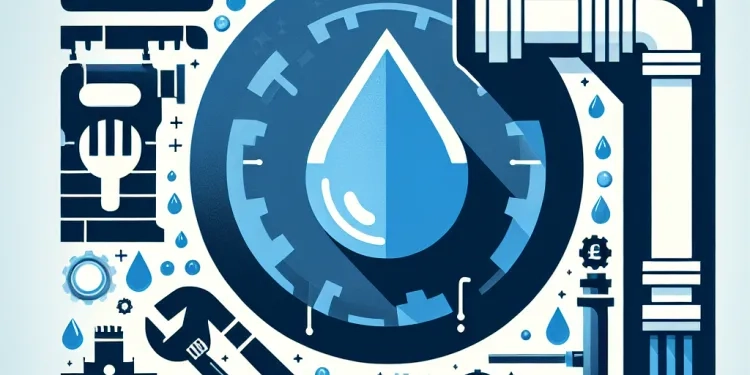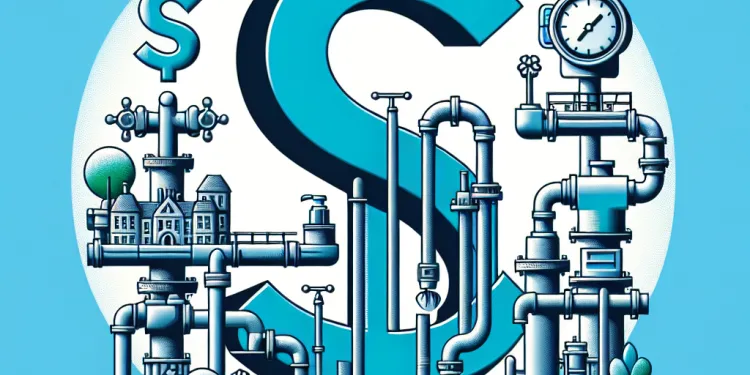
Find Help
More Items From Ergsy search
-

What are common signs of leaks in water infrastructure?
Relevance: 100%
-

Why is it challenging to fix water leaks in the UK?
Relevance: 71%
-

How much water is lost in the UK through poor infrastructure?
Relevance: 68%
-

How do water companies detect leaks?
Relevance: 68%
-

Are water companies responsible for maintaining water infrastructure in the UK?
Relevance: 66%
-

What does water infrastructure maintenance involve?
Relevance: 65%
-

Do water companies have to update the infrastructure?
Relevance: 64%
-

How old is the water infrastructure in the UK?
Relevance: 63%
-

Can customers report issues with water infrastructure?
Relevance: 61%
-

What challenges do water companies face in maintaining infrastructure?
Relevance: 61%
-

Are there initiatives to improve water efficiency in infrastructure?
Relevance: 59%
-

Do water companies have long-term infrastructure plans?
Relevance: 56%
-

Are water companies responsible to maintain and update infrastructure in the UK?
Relevance: 55%
-

Are there penalties for not maintaining water infrastructure?
Relevance: 54%
-

How does public reporting contribute to fixing leaks?
Relevance: 53%
-

How does climate change affect water infrastructure maintenance?
Relevance: 52%
-

How do water companies fund infrastructure updates?
Relevance: 52%
-

How will refunds affect investments towards improving water infrastructure?
Relevance: 51%
-

How are infrastructure priorities determined by water companies?
Relevance: 51%
-

How transparent are water companies regarding infrastructure improvements?
Relevance: 49%
-

How significant is the water loss problem in the UK?
Relevance: 48%
-

What percentage of water is lost through leaks in the UK?
Relevance: 48%
-

What measures are being taken to address water loss in the UK?
Relevance: 47%
-

What causes water loss in the UK?
Relevance: 47%
-

Are customers responsible for any part of the water infrastructure?
Relevance: 46%
-

How are new technologies helping to reduce water loss in the UK?
Relevance: 45%
-

Are there any government initiatives to tackle water loss in the UK?
Relevance: 43%
-

How are water companies held accountable for infrastructure maintenance?
Relevance: 40%
-

What happens if a water main bursts?
Relevance: 38%
-

What are the financial implications of water loss for the UK?
Relevance: 38%
-

What role do water companies play in sewage pollution?
Relevance: 38%
-

What impact does water loss have on the environment in the UK?
Relevance: 38%
-

What role do climate change and weather play in water infrastructure issues?
Relevance: 33%
-

Can individual actions significantly impact overall water loss?
Relevance: 33%
-

What is the role of consumers in reducing water loss?
Relevance: 32%
-

Why is infrastructure maintenance important?
Relevance: 32%
-

What is NRW in the context of water management?
Relevance: 30%
-

Which UK water companies are going to refund their customers for poor performance?
Relevance: 30%
-

What is the expected timeframe to significantly reduce water loss in the UK?
Relevance: 29%
-

Does Thames Water enforce a hosepipe ban more than other water authorities?
Relevance: 29%
Common Signs of Leaks in Water Infrastructure
Water infrastructure leaks can cause significant damage over time, leading to increased costs and potential safety hazards. Identifying these leaks early is crucial for maintaining efficiency and preventing more severe issues. Here are common signs that indicate possible leaks in water infrastructure, specific to the UK environment.
Unexplained Increase in Water Bills
A sudden spike in your water bill without any change in your water usage habits is one of the most straightforward indicators of a leak. Even a small leak can result in a substantial increase in wasted water, thus inflating your bill unexpectedly. Monitoring your bill closely can help in early detection of leaks.
Damp or Wet Patches
Noticeable damp patches on walls, ceilings, or floors can signify a leak in the plumbing. In the UK, where periods of wet weather are common, it's important to distinguish these signs from rising damp or condensation. Persistently wet areas inside the home, especially if they are warm, are typical indicators of leaking pipes.
Decreased Water Pressure
A significant drop in water pressure can often be indicative of a leak in the water main or service pipe. If your taps or showers have less force than usual, and you've ruled out blockages, a leak might be diverting water before it reaches your taps.
Mould and Mildew
Excessive mould and mildew, especially when they appear even when cleaning regularly, can indicate a moisture problem due to a water leak. These fungi thrive in moist environments and can cause health issues, making it crucial to identify and fix the source of moisture promptly.
Sound of Running Water
If you hear water flowing through pipes when all taps and water-using appliances are turned off, it is likely that there is a leak. Standalone sounds of dripping or hissing in the walls or floors often indicate that water is escaping from the pipes.
Unusual Smells
Foul odours or musty smells in your home can suggest a hidden leak, particularly if the smell is of stagnant water. In some cases, a sewage or damp smell might mean that sewage pipes are leaking or there’s standing water under properties.
Lush Patches in Your Garden
In garden areas, particularly during dry seasons, an unusually green or lush patch of grass or vegetation may indicate an underground leak. The additional moisture from the leak can promote rapid plant growth.
Detecting leaks early can prevent extensive structural damage and reduce repair costs. If you suspect a leak, consider hiring a professional to perform a thorough inspection and address the problem promptly.
Common Signs of Leaks in Water Pipes
Leaks in water pipes can cause a lot of problems over time. They can make things more expensive and even be dangerous. Finding these leaks early is important. It helps keep things working well and stops bigger problems. Here are some common signs of leaks in water pipes, especially in the UK.
Higher Water Bills
If your water bill goes up a lot and you haven't been using more water, you might have a leak. Even a small leak can waste a lot of water and make your bill go up. Check your bill often to catch leaks early.
Wet Spots
If you see wet or damp spots on walls, ceilings, or floors, there might be a leak in the pipes. In the UK, it's important to know if these spots are from the weather or a leak. Wet spots inside the house that stay wet could mean leaky pipes.
Low Water Pressure
If the water in your taps or shower comes out slower than usual, you might have a leak. If there are no blockages and the water pressure is still low, a leak might be taking water away before it gets to your taps.
Mould and Mildew
If you see a lot of mould and mildew, even after cleaning, there might be a leak. Mould likes wet places and can make people sick. It's important to find and fix where the moisture is coming from.
Sound of Running Water
If you hear water running when all taps and appliances are off, there might be a leak. Sounds like dripping or hissing in walls or floors often mean water is escaping from the pipes.
Strange Smells
Bad or musty smells in your home can mean there is a hidden leak. If it smells like stagnant water or sewage, there might be a leak in the sewage pipes or water sitting under the building.
Green Patches in Your Garden
If your garden has a very green or lush spot during dry times, there might be an underground leak. The extra water helps plants grow faster.
Finding leaks early can stop big damage and save money on repairs. If you think you have a leak, it's a good idea to get a professional to check and fix it quickly.
Frequently Asked Questions
What are common signs of leaks in water infrastructure?
Common signs include unexplained increases in water bills, damp spots on floors or walls, loss of water pressure, and the sound of running water when all taps are closed.
How can an increase in water bills indicate a leak?
If your water bill shows a significant increase without a corresponding rise in water usage, it could indicate a hidden leak in the system.
Why are damp spots a sign of a water leak?
Damp spots on floors, walls, or ceilings may indicate water escaping from pipes or fixtures, suggesting a possible leak.
How does low water pressure suggest a leak?
Leaks can reduce the amount of water available to reach your taps, resulting in lower water pressure.
Is the sound of running water a sign of a leak?
Hearing the sound of running water when all taps and water-using appliances are off may indicate water escaping from a pipe or fixture.
Can mold or mildew indicate a water leak?
Yes, mold or mildew growth in unexpected areas often results from excess moisture, which could be due to a leak.
What role do water stains play in detecting leaks?
Water stains on ceilings or walls suggest water accumulation over time, usually from a leaking pipe.
Can cracked or bubbling paint indicate a leak?
Yes, moisture from leaks can cause paint to bubble or crack as water seeps underneath.
Why should I be concerned about wet spots in my yard?
Wet or unusually lush areas in your yard can be signs of underground water line leaks, especially if they occur without rainfall.
How can unusual odors indicate a water leak?
Unexplained musty or earthy odors can signal mold or mildew growth due to excess moisture from a leak.
Why is pooling water a concern for leaks?
Water pooling inside or outside your home with no obvious source often indicates a leak.
Can my water meter help detect leaks?
Yes, if your water meter is running when no water is being used, it could indicate a leak.
What does a hissing noise from pipes mean regarding leaks?
A hissing or whooshing noise coming from pipes might indicate a pressurized water line leak.
How do pipe corrosion and discoloration indicate leaks?
Corroded or discolored pipes can weaken and eventually leak, indicating potential water damage.
Are spikes in humidity a sign of a water leak?
Sudden unexplained increases in indoor humidity can result from hidden leaks adding moisture to the air.
How does a warm floor spot relate to leaks?
A warm or hot spot on the floor might result from a hot water pipe leak beneath the surface.
Why should I be wary of cracks in the foundation?
Leaks can cause structural damage, leading to cracks in the foundation from soil erosion or water pressure.
What should I do if I suspect a leak?
If you suspect a leak, investigate common signs, check your water meter, or consult a professional plumber.
Do leaks always cause visible damage?
Not always; many leaks can occur in hidden places, causing damage without immediate visible signs.
How often should I check for leaks in my water infrastructure?
Regular inspections, ideally annually or more frequently if you notice signs, can prevent severe leak damage.
What are common signs of leaks in water systems?
Here are some signs that water might be leaking:
- Water bills get higher than normal.
- You see wet spots on the ground or walls.
- You hear water running all the time, even when taps are off.
- Water pressure is low or keeps changing.
- Mold starts to grow in places it didn't before.
To help spot leaks, you can:
- Check your water meter to see if it moves when no water is used.
- Listen for dripping sounds.
- Use apps that can help detect leaks.
Here are some signs to look out for:
- Your water bill is higher than usual, but you don't know why.
- You see wet patches on the floor or wall.
- The water from your taps is not as strong as before.
- You hear water running, but no taps are on.
If you find this hard, here are some tips to help:
- Ask someone to read it with you.
- Use a text-to-speech tool to hear the words.
- Highlight keywords to focus on the important parts.
How can higher water bills show there is a leak?
If your water bill is more money than usual, it might mean there is a leak. A leak is when water is coming out where it should not be.
Here is a way to check for leaks:
- Look at your water meter when no water is being used in your home.
- Wait for an hour.
- If the number on the meter goes up, it means water is leaking.
Ask an adult to help you or call a plumber if you think there is a leak.
If your water bill is much higher than usual, and you are not using more water, you might have a leak that you can't see.
Why do wet spots mean there is a water leak?
Wet spots on the wall or floor can mean that water is coming from somewhere it shouldn't. This is called a water leak.
When you see wet spots, it is a good idea to tell an adult, like a parent or a teacher, so they can help fix it.
You can use tools like a flashlight to look for wet spots, or use your hand to feel if a place is wet.
Wet patches on the floors, walls, or ceilings might mean water is leaking from the pipes. This could be a sign of a leak.
How can low water pressure show a leak?
Leaks let water escape. This means less water gets to your taps. This can make the water pressure low.
Does hearing water mean there is a leak?
If you hear water running, but all the taps are off, there might be a leak. Maybe water is escaping from a pipe or something similar.
Can mold or mildew show there is a water leak?
Mold and mildew are signs that water might be leaking somewhere. If you see them, check for leaks.
Helpful tools: Try using a flashlight to look in dark areas. Ask for help if you find it hard to see or reach some spots.
Yes, mold or mildew happens because there is too much wetness. This might be because of a leak.
What are water stains and how do they help find leaks?
Water marks on the ceiling or walls mean water is getting in. This usually happens because there is a pipe that is leaking.
Does cracked or bubbling paint mean there is a leak?
Sometimes, cracked or bubbling paint can show there is a leak. When water gets behind the paint, it can make the paint bubble or crack.
Look carefully at the walls. If you see bubbling or cracked paint, there might be water damage.
If you find it hard to look for these signs, you can ask someone for help. Using a flashlight can also make it easier to see the paint closely.
Yes, water from leaks can make paint bubble or crack. This happens when the water gets under the paint.
Why should I worry about wet spots in my yard?
Wet spots in your yard can cause problems.
- They can make the ground slippery.
- Plants might not grow well.
- It can attract bugs or mosquitoes.
If you see wet spots, try these:
- Talk to someone who knows about gardens.
- Use tools like a spade to check the ground.
- Look for a person who can help fix it.
If you see wet spots or really green areas in your yard, it might mean there is a water leak underground. This can happen even if it hasn’t rained.
How can strange smells show there is a water leak?
If you smell something odd, it could mean there is a water leak. Wet places can make mold, and mold has a strong smell. This smell could be a sign of a leak.
Tools that can help:
- Use your nose to sniff around for musty smells.
- Look for wet spots or mold on walls or floors.
- Ask an adult for help if you think there is a leak.
If you smell a musty or earthy smell, it could mean there is mold or mildew. This can happen if there is too much water because of a leak.
Why is pooled water a problem with leaks?
Pooled water can show that something is leaking. This means water is coming out where it should not.
Here are some reasons why it is a problem:
- Pooled water can cause damage. It can make floors and walls wet and break them.
- It can make mold grow. Mold is bad for your health and smells bad.
- It can make the area slippery. This can cause people to fall and get hurt.
If you see pooled water, it's a good idea to tell an adult. They can help fix the leak.
To understand more, you can:
- Use pictures to see what pooled water looks like.
- Ask for help to read if you need it.
If you see water inside or outside your home and you don't know where it's coming from, there might be a leak.
Can my water meter find leaks?
Yes, if your water meter is moving when you are not using water, there might be a leak.
What does a hissing noise from pipes mean about leaks?
If you hear a "hiss" sound from your pipes, it might mean there is a leak. A leak means water is escaping from the pipe where it should not be. This can happen if the pipe is broken or has a small hole.
Here is how you can check for leaks:
- Listen carefully to find where the hissing sound is coming from.
- Look for any wet spots or places where water is dripping.
- Ask an adult for help if you think there is a leak.
You can use a flashlight to see better in dark places. You can also read about leaks in books or online with an adult to learn more.
If you hear a hissing or whooshing sound from the pipes, it could mean there is a leak in the water pipes. This might happen when water is under pressure.
You can use a simple tool to listen around the pipes. If you think there is a leak, ask an adult to help fix it. They can call a plumber.
How do rusty and colored pipes show leaks?
Pipes that are rusty or have changed color can get weak. They might start to leak. This can cause water problems.
Can high air moisture mean there’s a water leak?
Sometimes, when there is too much water in the air, it can mean there is a leak. A “leak” is when water is escaping from pipes or other places it shouldn't.
If you notice that the air feels very wet or humid, it might be a good idea to check for leaks.
Try using a humidity sensor to see how much moisture is in the air. You can also ask an adult to help you look for any dripping water or wet spots on walls and ceilings.
If there is more water in the air inside suddenly, it might be because there is a hidden leak somewhere that is making the air wet.
What does a warm floor spot mean about leaks?
You might feel a warm or hot spot on the floor because a hot water pipe underneath is leaking.
Why are cracks in the foundation a problem?
Cracks in the foundation can be bad. They might make your house unsafe. Cracks can get bigger over time. Then, they could break other parts of your house.
Here are some tips to help you:
- Look at the foundation often. Check for any new cracks.
- If you see a crack, tell an adult. They can help decide what to do next.
- Keep water away from the foundation. Water can cause cracks to grow.
- Use pictures and simple charts to understand more about foundations.
- Ask someone to help you read or understand tricky words.
Leaks can make buildings weak. Water can wash away the soil underneath. This makes cracks in the base of the building. This is why leaks are bad.
What do I do if I think there is a leak?
If you think something is leaking, tell an adult you trust.
Here are some things you can do:
- Look for water, gas, or oil where it should not be.
- Listen for sounds like dripping or hissing.
- Smell for unusual or strong odors.
Need help? Here are some tools:
- Use a flashlight to see better.
- Take a picture with a phone to show someone.
- Write down what you notice to remember.
If you think there might be a leak, look for warning signs. You can also check your water meter or ask a skilled plumber for help.
Can leaks always be seen?
No, not always. Leaks can happen in places you can't see. They can cause damage before you spot them.
How often should I look for water leaks?
Check for leaks every month. This helps you find problems early.
You can use tools to help you, like:
- Water meter: It shows how much water you use. If the numbers go up when you're not using water, there might be a leak.
- Leak detectors: These can make a sound or send a message if they find a leak.
Ask a friend or family member to help if you need it.
Check your roof every year to stop leaks. If you see anything wrong, check it more often.
Useful Links
This website offers general information and is not a substitute for professional advice.
Always seek guidance from qualified professionals.
If you have any medical concerns or need urgent help, contact a healthcare professional or emergency services immediately.
Some of this content was generated with AI assistance. We’ve done our best to keep it accurate, helpful, and human-friendly.
- Ergsy carfully checks the information in the videos we provide here.
- Videos shown by Youtube after a video has completed, have NOT been reviewed by ERGSY.
- To view, click the arrow in centre of video.
- Most of the videos you find here will have subtitles and/or closed captions available.
- You may need to turn these on, and choose your preferred language.
- Go to the video you'd like to watch.
- If closed captions (CC) are available, settings will be visible on the bottom right of the video player.
- To turn on Captions, click settings .
- To turn off Captions, click settings again.
More Items From Ergsy search
-

What are common signs of leaks in water infrastructure?
Relevance: 100%
-

Why is it challenging to fix water leaks in the UK?
Relevance: 71%
-

How much water is lost in the UK through poor infrastructure?
Relevance: 68%
-

How do water companies detect leaks?
Relevance: 68%
-

Are water companies responsible for maintaining water infrastructure in the UK?
Relevance: 66%
-

What does water infrastructure maintenance involve?
Relevance: 65%
-

Do water companies have to update the infrastructure?
Relevance: 64%
-

How old is the water infrastructure in the UK?
Relevance: 63%
-

Can customers report issues with water infrastructure?
Relevance: 61%
-

What challenges do water companies face in maintaining infrastructure?
Relevance: 61%
-

Are there initiatives to improve water efficiency in infrastructure?
Relevance: 59%
-

Do water companies have long-term infrastructure plans?
Relevance: 56%
-

Are water companies responsible to maintain and update infrastructure in the UK?
Relevance: 55%
-

Are there penalties for not maintaining water infrastructure?
Relevance: 54%
-

How does public reporting contribute to fixing leaks?
Relevance: 53%
-

How does climate change affect water infrastructure maintenance?
Relevance: 52%
-

How do water companies fund infrastructure updates?
Relevance: 52%
-

How will refunds affect investments towards improving water infrastructure?
Relevance: 51%
-

How are infrastructure priorities determined by water companies?
Relevance: 51%
-

How transparent are water companies regarding infrastructure improvements?
Relevance: 49%
-

How significant is the water loss problem in the UK?
Relevance: 48%
-

What percentage of water is lost through leaks in the UK?
Relevance: 48%
-

What measures are being taken to address water loss in the UK?
Relevance: 47%
-

What causes water loss in the UK?
Relevance: 47%
-

Are customers responsible for any part of the water infrastructure?
Relevance: 46%
-

How are new technologies helping to reduce water loss in the UK?
Relevance: 45%
-

Are there any government initiatives to tackle water loss in the UK?
Relevance: 43%
-

How are water companies held accountable for infrastructure maintenance?
Relevance: 40%
-

What happens if a water main bursts?
Relevance: 38%
-

What are the financial implications of water loss for the UK?
Relevance: 38%
-

What role do water companies play in sewage pollution?
Relevance: 38%
-

What impact does water loss have on the environment in the UK?
Relevance: 38%
-

What role do climate change and weather play in water infrastructure issues?
Relevance: 33%
-

Can individual actions significantly impact overall water loss?
Relevance: 33%
-

What is the role of consumers in reducing water loss?
Relevance: 32%
-

Why is infrastructure maintenance important?
Relevance: 32%
-

What is NRW in the context of water management?
Relevance: 30%
-

Which UK water companies are going to refund their customers for poor performance?
Relevance: 30%
-

What is the expected timeframe to significantly reduce water loss in the UK?
Relevance: 29%
-

Does Thames Water enforce a hosepipe ban more than other water authorities?
Relevance: 29%


